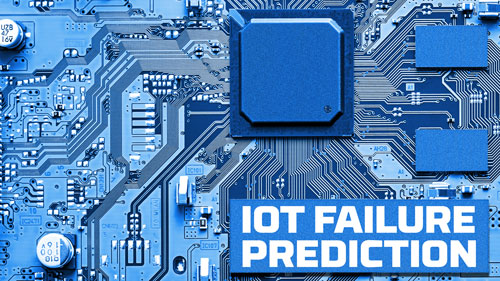IoT Failure Prediction
Problem
There are hundreds of pieces of IoT equipment in each SeaPod, spread across hundreds of SeaPod locations across geographic locations. In such a scenario, it becomes challenging to keep maintenance service high quality and cost effective for both the property owner and maintenance service provider.
Furthermore, home appliances like fridge, boiler and HVAC are consuming the majority of the energy spent on household appliances, malfunctioning devices can increase the cost even further.
Solution
The idea is to create a predictive maintenance system that can identify the equipment’s malfunctions and eventual failures before they occur. This is possible with a combination of data acquisition, analysis and prediction/forecast.
Industry
There are several MLaaS (Machine Learning as a Service) providers to build, run and model AI to predict equipment failure using IoT sensor data. The four leading cloud MLaaS services are:
Amazon AWS
Microsoft Azure
Contact person: Ville.Happonen@microsoft.com
Google Cloud AI
IBM Watson
Contact person
Matthew R Solomon
Instead of using MLaaS that might be leaky, Encrypted Machine Learning as a Service could be used to assure data security.
Probably the most secure option to train and run machine learning models is to use an open source programming language like Julia Computing where the user can send its encrypted data to the cloud using API and get the encrypted result from the machine learning models. During the entire process, the data is neither decrypted nor stored in the cloud. Consequently, the cloud provider could not access the users’ data. You can read more about it here.
Contact person:
Matt Bauman
Information
Repository
<text>
License Requirement
Open Source: Can be used for private or commercial projects
Software: GNU General Public License (GNU GPL V3) here
Non-Software: Creative Commons (CC BY-SA 4.0) here
Project Areas
- IoT Development (sensors, arduino’s and raspberry pi’s)
- Software Development (python)?
- ?
- ?
Keywords: : big data applications; big data services; infrastructure; data processing; data analysis; predictive maintenance; machine learning, failure detection, sensor calibration
Project requirements
Stages and deadlines
|
Project Start |
date |
|
Team Formed |
date |
|
Market Research Summary (Report) |
date |
|
Project Plan Complete |
date |
|
Preliminary Product Design Complete |
date |
|
Prototype Development Complete |
date |
|
Prototype Evaluation Complete |
date |
|
Product Presentation |
date |
|
Project Completion |
date |
Project plan should cover the following:
- stages / milestones of a project (not all stages are brought out in a table above)
- activities or tasks in each phase
- task start and end dates
- interdependencies between tasks
Also:
- skills needed
- responsibilities of each team member (identify as many as you can).
Preliminary product design should cover the following:
- production components, raw material
- system block diagram (This diagram specifies each electronic function and how all of the functional components interconnect).
- preliminary Bill of Materials (BOM)
- production cost estimation
- performance
- features
- development feasibility
- Manufacturability
Product’s requirements
|
Can the system monitor appliances efficiency (e.g. fridge, HVAC)? |
|
Can the system monitor appliances accuracy (e.g. sensors) ? |
|
Can the system predict appliances failure? |
|
Can the system detect if the appliance has already failed (e.g. LED lights) ? |
|
Is the false detection probability less than 1%? |
List of devices
You can find a list of devices here (not finished yet)
Project video link:
https://www.dropbox.com/s/ovz2z3xm9wgjk1m/FailurePrediction.mp4?dl=0

